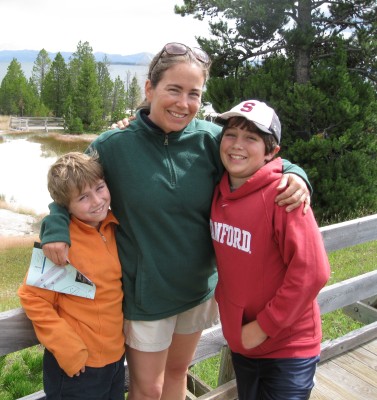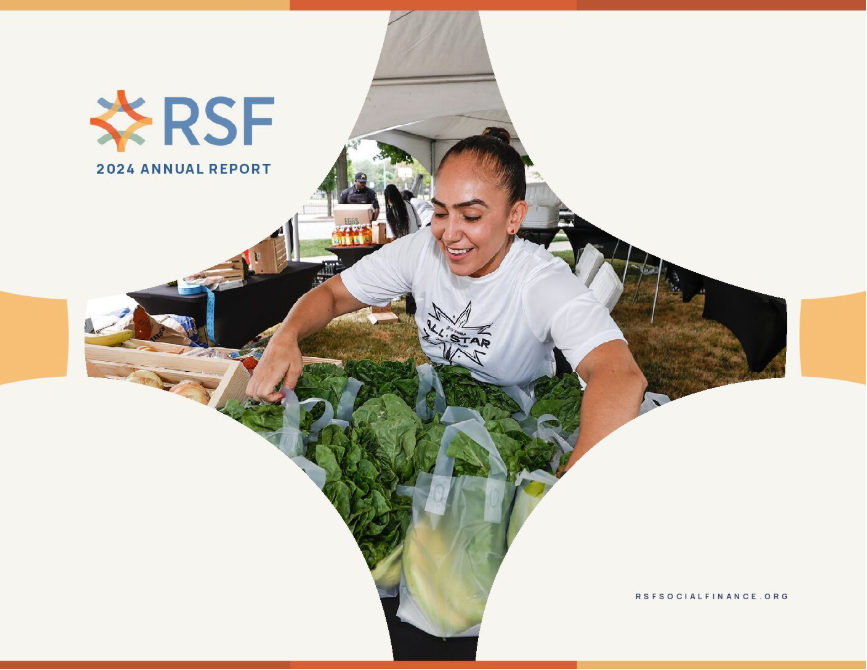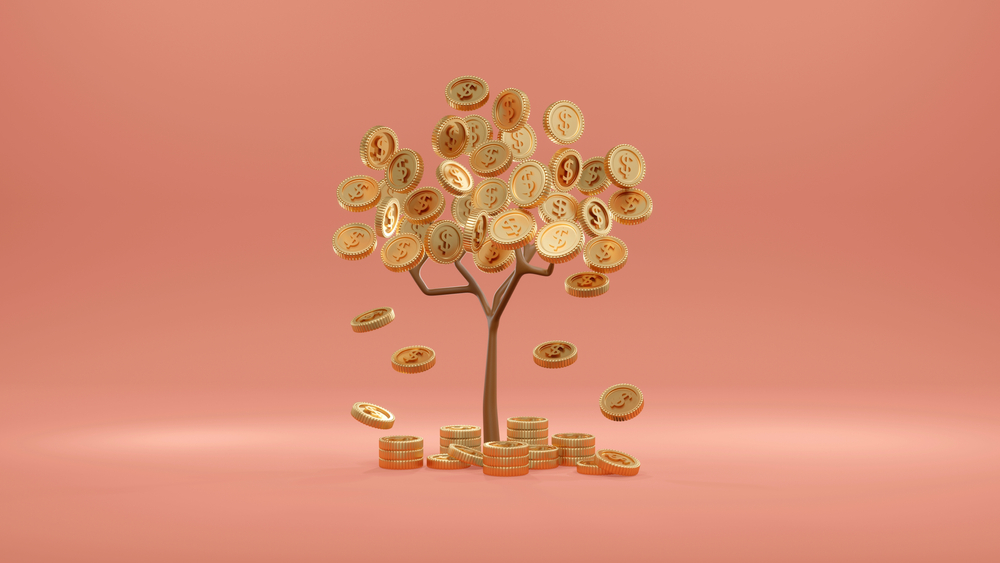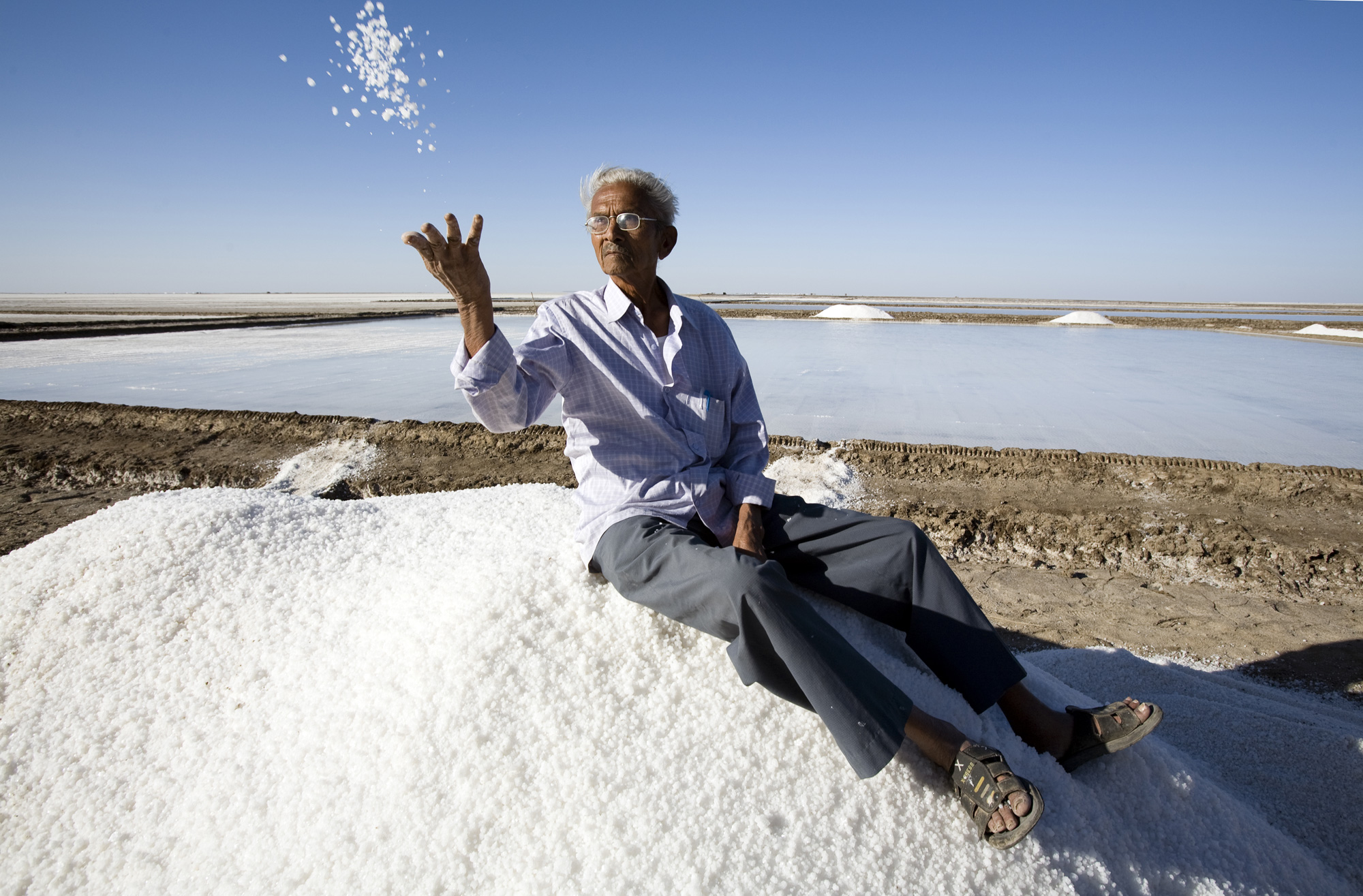When we arrived at RSF Social Finance, Ellie, the receptionist, asked if we wanted a cup of tea. It was the day after Easter, a day off from school for my sons. I told the boys that we were going to San Francisco to invest some of their college savings.
On the way to the city, we stopped at our credit union and withdrew money from a savings account I had set up for my eight year old son Ian. I gave Ian the check to hold in the car. He studied the piece of paper carefully. When we got to RSF Social Finance, he was still holding the check with care.
“I would like a cup of darjeeling, please,” Ian responded to the receptionist’s question.
“Darjeeling. Hmm. Let’s go see if we have some,” she offered, leading us into the kitchen.
Mark Herrera, RSF’s Client Development manager met us there. As Ian and Ellie focused on tea, Mark showed the composter to my 11 year old Roddy and explained what biodynamic sugar is. “These are some of the products made by the companies supported by the fund in which you’ll be investing,” Mark explained.
Next, he led us upstairs to the conference room overlooking the Golden Gate Bridge. We felt very important.
In the conference room, Mark gave the boys samples of organic cookies. Together they read the ingredients, all of which actually sounded like food. Then, Mark told the boys about a company that employs people who are newly released from prison. Next, he described with excitement a sustainable fishery in Alaska that is allowing the Eskimo people to keep their way of life. “These are more of the companies the fund you are investing in supports.” The boys nodded.
Mark then sat down with Roddy and Ian and explained the mechanics of the investment, making sure they understood how it worked and what the rate of financial return would be. Together they did the math to figure out what that translated to in terms of the boys’ investments.

When Mark was satisfied that Roddy and Ian understood what they were getting into, he had them each fill out an application and sign it. Their accounts were officially open.
On one level, this exchange felt like no big deal; it seemed like how making an investment should work. But as I watched, another part of me wanted to celebrate. I was aware that what I was witnessing was the result of years of my searching for a different way with money.
Twenty years ago, I received a gift of love that came in the form of a financial portfolio. At the time, I understood little of how investments worked. But as I learned about the mutual funds in my portfolio, I realized that I was invested in companies whose products and ways of doing business offended my conscience. I searched for other models of investing and discovered socially responsible mutual funds.
Initially, I felt good about moving my money into those funds. But as I read through the prospectuses and annual reports, I soon realized that in spite of a variety of social screens I was still invested in companies whose products I would not buy. The socially responsible mutual funds I had in my portfolio felt to me like the lesser of two evils.
A few years later, I was attending a conference on Sabbath Economics when Rob Baird of Progressive Investments (now Portfolio 21) got up to speak about investing. He did not have any fancy visuals, but as he spoke, I felt as if fireworks were going off. Listening to Rob, I saw for the first time a way that investments could do something good in the world.
Up until then, I felt I had to hold on to some of my investments in order to care for my family. But I felt horribly conflicted about doing so because it felt that my money was sitting inside of a global economic system that is causing harm. As Rob spoke about different models of investing, a door to a whole new world opened for me. I started to search for investments that could do good.
I learned about investing in microcredit; in affordable housing mutual funds; in community development banks; fair trade companies; and social investment funds. I worked with Andy Loving, an advisor who shares my faith and began to move some of my money into those kinds of investments. When the financial statements came each month, I noticed how differently I felt opening the ones that came from investments I had chosen. Instead of feeling guilty, I felt excited. It felt like a privilege to participate in the work of fair trade companies and local organic farms.
Shifting to alternative economic models required that I let go of the possibility of a high financial return. Having been raised to believe that receiving a high financial return was “good stewardship,” that was hard at first. Didn’t I have a responsibility to seek high returns for myself and for my children?
But as I learned about the impact many corporations are having on the ecosystem and the human family, I came to believe that that definition of good stewardship was inadequate. Good stewardship, for me, needed to take into account the world that I am passing on to my children as well as the money that will eventually change hands. I wanted any investments that I participated in to be part of creating a world full of life.
On one level, my visit to RSF Social Finance to invest a portion of my children’s college savings on Easter Monday was simply the next step in my process of shifting the investments I manage into such vehicles. But that day in the conference room I felt as if something else was happening too. There was something there that felt holy.
As a mother, I feel a responsibility to form my children in Easter hope. I try to do that by modeling and letting my children know about ways of living that respond to the crises of this historical moment with alternatives that bring life. My children will inherit this world. For me, it is not enough to bring them to church. I feel I also need to show them how to discern where God is moving in the world and teach them how to participate in that.
That is what it felt like was happening that day at RSF. In the conference room, I sensed that my boys and I were participating in a way of investing money that brings life to everyone it touches. In addition, Mark’s taking the time to teach the boys about how their investment would affect others was powerful. It was as if he understood that giving children life-giving possibilities when it comes to money is a radical investment in the future.
As I witnessed the exchange, I felt a sense of awe and gratitude. I felt a Holy Presence with us as we sipped tea, ate cookies, and filled out investment account forms on Easter Monday.
by Rosemary Feerick


